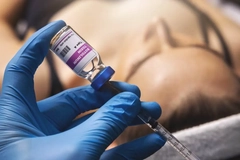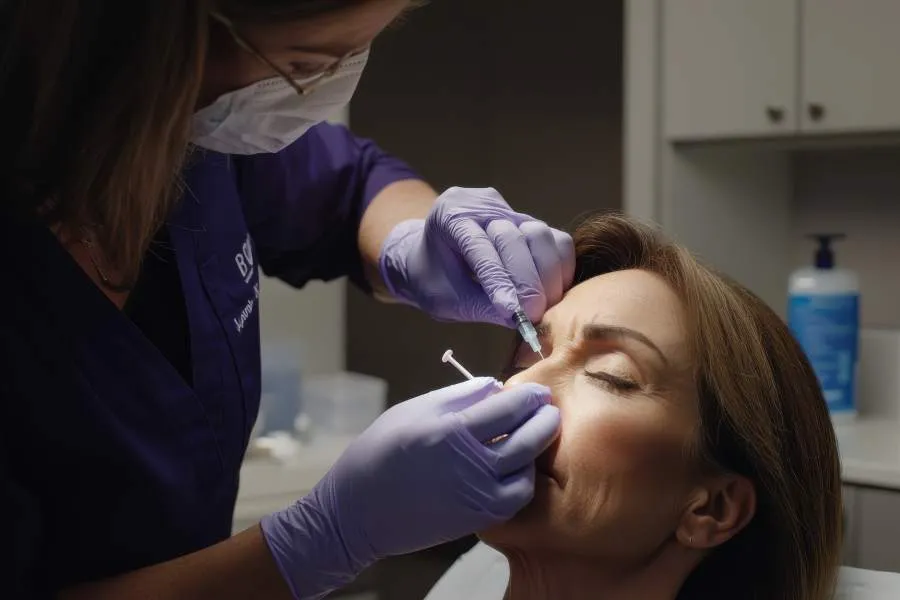Consumer Scotland presses for stronger safeguards in new cosmetic injection bill
Key takeaways
- Consumer Scotland urges stronger safeguards in Scotland’s new Non-surgical Procedures and Functions of Medical Reviewers (Scotland) Bill.
- It calls for mandatory risk disclosure, practitioner checks, licensing, and stricter advertising rules.
- The bill aims to protect under-18s and vulnerable consumers amid rising injection-related harms.

The Scottish government has unveiled a bill to strengthen consumer protection against harmful non-surgical cosmetic procedures. The independent, statutory body, Consumer Scotland, welcomes the bill but urges the government to take additional steps to protect consumers and ensure they make informed decisions.
The Non-surgical Procedures and Functions of Medical Reviewers (Scotland) Bill was introduced into the Scottish Parliament on October 8. It has not yet become law as per the current parliamentary status.
Consumer Scotland stresses that as the popularity of Botox, dermal fillers, and laser treatments has increased in recent years, so have concerns about safety and accountability.
The government is currently addressing this issue with the new legislation, aiming to reduce the potential harm from high-risk procedures.
“Consumers should be able to trust that any cosmetic procedure they undergo is carried out safely, in an appropriate environment, and by someone with the right qualifications. The bill is an important and welcome development, but there are clear opportunities to strengthen it,” says Douglas White, Consumer Scotland’s director of policy and advocacy.
“By ensuring consumers receive comprehensive information, by supporting fair and accurate advertising, and by requiring robust mechanisms for help when things go wrong, the Scottish government can deliver a regulatory regime that puts consumer safety and confidence at its heart.”
Transparency and accountability
Consumer Scotland advocates for a mandatory disclosure of potential outcomes, risks, practitioner qualifications, and license status of the venue where the treatment takes place.
The independent body also suggests that the success rates for different procedures should be made public, to improve accountability, and provide clear instructions on how to address any issues that may arise.
 Consumer Scotland suggests the success rates for different non-surgical cosmetic procedures should be made public.Additionally, Consumer Scotland urges the need for improved accountability, including requirements for professional registration, insurance, indemnity, and clear signposting to complaints and regulatory bodies. This ensures that consumers have a designated point of contact in case of harm.
Consumer Scotland suggests the success rates for different non-surgical cosmetic procedures should be made public.Additionally, Consumer Scotland urges the need for improved accountability, including requirements for professional registration, insurance, indemnity, and clear signposting to complaints and regulatory bodies. This ensures that consumers have a designated point of contact in case of harm.
It also recommends that the Scottish government collaborates with the Committee of Advertising Practice and the Advertising Standards Authority to ensure that advertisements for these cosmetic procedures are accurate, fair, and do not exert undue pressure or mislead consumers.
The bill is currently in stage one (out of four) in becoming an act. The parliament explains: “At stage one, the bill is given to a lead committee. This is usually the committee whose remit most closely relates to the subject of the bill. The lead committee will consider and report on the bill.”
“Other committees may also examine the bill and report to the lead committee. Finally, there is a debate and a vote by all MSPs on the general principles of the bill. If the general principles are not agreed to, then the bill ‘falls’ and can’t become law.”
Call for age restrictions
Consumer Scotland asserts its primary aim is to protect young consumers, those from rural and island areas, and individuals in vulnerable situations.
Getting cosmetic injections or other procedures can be invasive, with long-term side effects and risks to both physical and mental health, it says.
Biotech company Revance recently found that consumers often pay little to no attention to the ingredients commonly used in frown-line treatments, such as Botox. Most injectable treatments carry human or animal-based ingredients, such as blood plasma.
 Getting cosmetic injections or other procedures can be invasive, with long-term side effects.Consumer Scotland mentions another recent consumer survey whose participants had experienced complications following cosmetic Botulinum Toxin injections. It found that seven out of 10 were experiencing lasting effects.
Getting cosmetic injections or other procedures can be invasive, with long-term side effects.Consumer Scotland mentions another recent consumer survey whose participants had experienced complications following cosmetic Botulinum Toxin injections. It found that seven out of 10 were experiencing lasting effects.
“While anxiety, pain, and headaches or migraines were most commonly reported, consumers also reported experiencing emotional, psychological, and financial harm.”
“Given these risks, we welcome the proposal to introduce age restrictions to protect consumers who are under 18,” asserts Consumer Scotland.
Until 2021, Botox injections were legal for people under 18 in England. The UK Department of Health estimated that 41,000 Botox procedures were performed on this age group in 2020, and over 29,300 dermal filler procedures between 2017 and 2021.
Saveface, a UK government-approved register, said that while England implemented the ban, minors could still travel to the neighboring countries, as Scotland has not yet followed England’s age limit for cosmetic procedures.
Consumer Scotland states that by making it an offense to provide treatment to consumers under 18, the proposal would provide the same protection for young people as in England.
Consumers from rural and island locations usually have poorer access to treatments compared to urban residents.
“We suggest that the effect on competition and pricing in rural areas should be monitored and taken into account in wider Scottish government policy activity seeking to monitor and address the cost of living in rural communities,” says Consumer Scotland.













